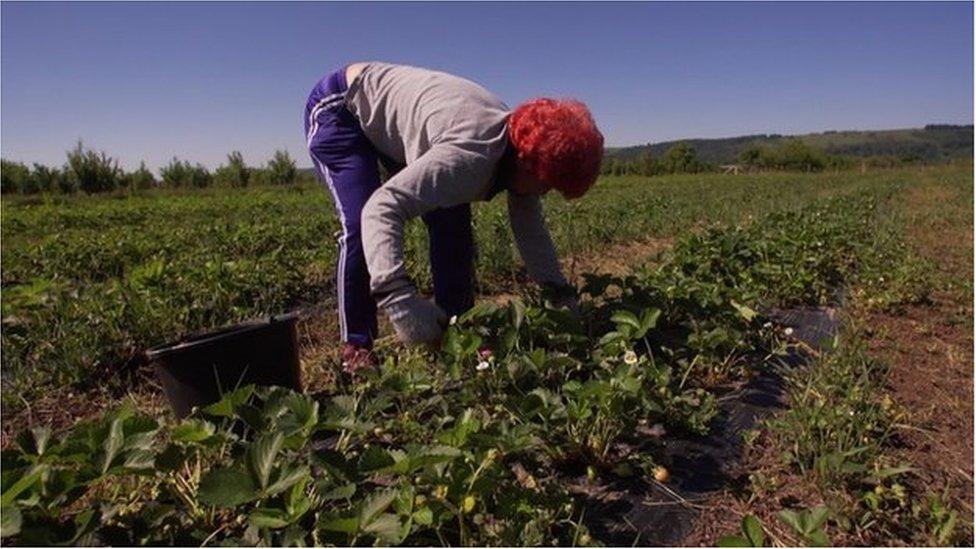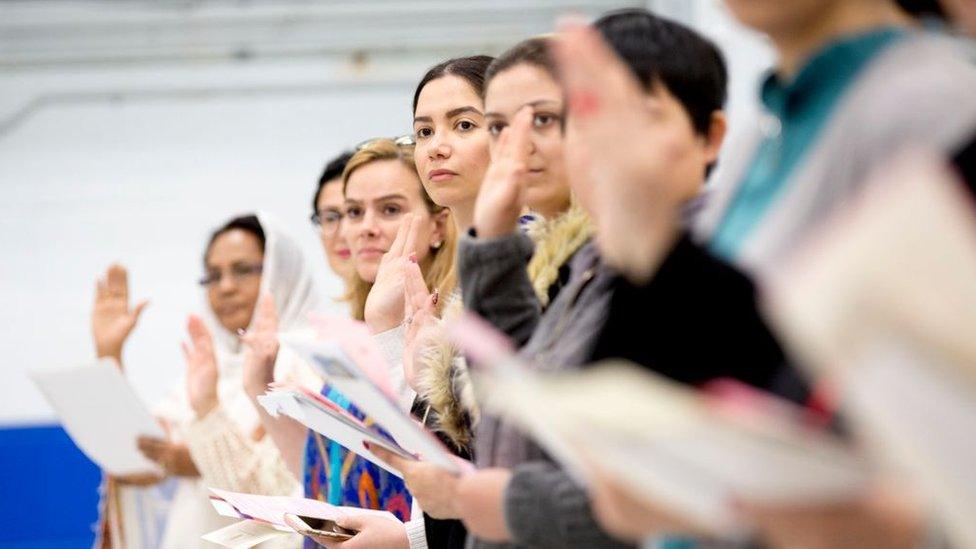Farms looking further afield as migrant labour costs rise
- Published

Prof Jim Monaghan said farms were looking further afield for their labour
Farms are seeing labour and energy costs rise, leading them to look further afield for migrant workers or look to automation, an academic said.
Prof Jim Monaghan, of Harper Adams University in Shropshire, said vegetable and fruit farms had been hit by Covid, Brexit and the loss of Ukrainian labour.
He said labour costs at those farms had risen by 20%.
The National Farmers Union said farmers were also facing rising energy costs.
Businesses have been calling for more migrant labour and on Wednesday, the Confederation of British Industry director-general Tony Danker said the UK needed more foreign workers to drive economic growth as the country faced a deep recession.
A report, external published by the National Farmers Union (NFU) in April suggested overall production costs for growers has increased by as much as 27% in the past 12 months, with products such as tomatoes, broccoli, apples, and root vegetables most affected.
The NFU said energy costs were the biggest part of this, but the cost of labour had also risen and called on the government to lift the cap on the seasonal worker scheme and increase the number of visas available to meet the sector's needs.
Prof Monaghan, the director of the university's Fresh Produce Research Centre, said Shropshire has a lot of lettuce, vegetable and soft fruit farms, which each needed hundreds of workers to harvest the crops.
He said until recently about half of those workers had come from Ukraine, but "a lot of those have returned back to Ukraine because they're young men of fighting age".
Efforts to bring in more British farm labourers had failed, because it is "tough work", he said.
'Businesses are resourceful'
Prof Monaghan also said that since Brexit he was seeing fewer workers from European countries such as Poland, Bulgaria and Romania and more from Vietnam, Indonesia, Kyrgyzstan and Kazakhstan.
The NFU report said the quality of labour from these new countries was not as high, however, causing productivity issues.
While automation was expensive, he said, rising labour costs meant "it starts to get to a point where actually it makes more sense to invest in this really expensive equipment".

Many UK growers are dependent on seasonal workers to harvest crops
A report by the Environment, Food and Rural Affairs Committee in April said Covid and Brexit had caused serious labour shortages in the food and farming sector.
The Department for Environment, Food and Rural Affairs (Defra) said it accepted there were labour issues and that it was "continuing to work with the sector" and was looking at how new technology could be used.
It said it had also "given the industry greater certainty by enabling the seasonal workers scheme until the end of 2024, allowing overseas workers to come to the UK for up to six months to work in the horticulture sector".

Follow BBC West Midlands on Facebook, external, Twitter, external and Instagram, external. Send your story ideas to: newsonline.westmidlands@bbc.co.uk , external
Related topics
- Published21 November 2022

- Published22 November 2022

- Published22 November 2022

